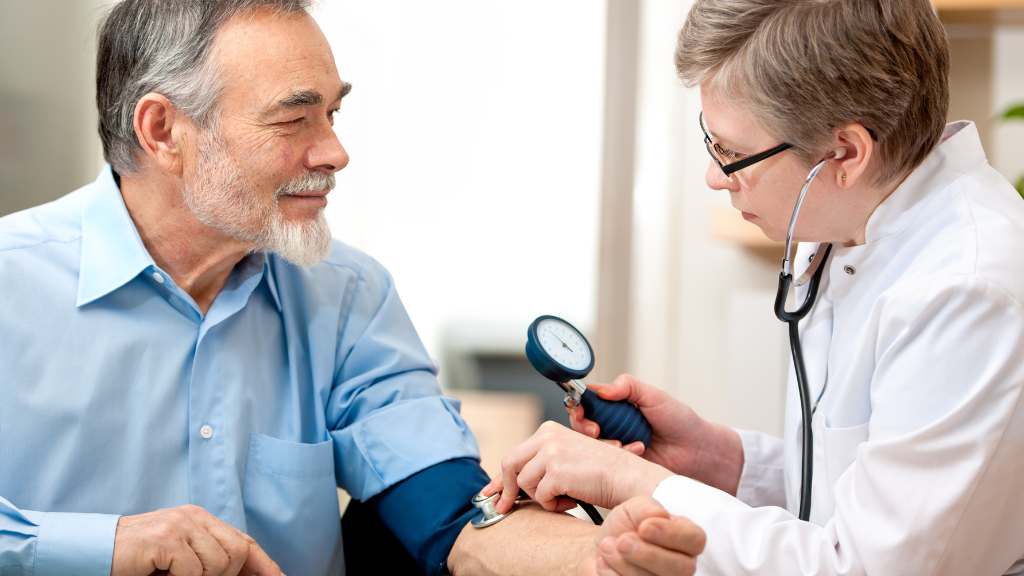When the goal is to prevent and diagnose illnesses early, Health Screenings are an essential tool. Health screenings involve a range of different diagnostic tests and examinations that can help identify conditions such as cancer, heart disease, diabetes, and high blood pressure, among others.
These medical check-ups can be done at different ages and stages of life, depending on various factors such as family history, lifestyle, and underlying medical conditions. For example, screenings for breast and cervical cancer are recommended for women starting in their 20s, while men are advised to have regular prostate cancer screenings from the age of 50.
The frequency and type may change, but the main idea is to catch these conditions early when they are often easier to treat and more likely to be curable. In this blog post, we will explore the different types of health screenings, why they are important, and when you should consider having them. So, let’s get started!
Types of Health Screenings
A number of health screenings are available for adults, but these are some of the most common:
Blood Pressure Screening
High blood pressure is known as the “silent killer” because it often has no symptoms. You can only find out if your numbers are too high by measuring your blood pressure and if it’s too high it can cause serious health issues such as heart disease. This test is typically performed with a measuring device, which often has an arm cuff attached to it.
Learn more about blood pressure screenings
Cancer Screenings
Many types of cancer can be detected early with screening tests. For example, mammograms for breast cancer, Pap smears for cervical cancer, colonoscopies for colon cancer, and ultrasounds for prostate and testicular cancer can help detect these diseases early and increase the chances of successful treatment.
Vision Screening
As we age, our eyesight may change. A regular eye exam can detect changes in your vision and identify potential problems such as glaucoma, cataracts, and age-related macular degeneration. Adults should have an eye exam at least once every two years, according to Prevent Blindness, these exams should be performed every 2-4 years, and for people over 65 years old, every 1 or 2 years.
Cholesterol Screening
Blood cholesterol is essential for your body, but when it reaches high levels it can lead to clogged arteries and heart disease. The thing is high blood cholesterol doesn’t have symptoms, that’s why is so important to take preventive measures. A simple test called “lipid profile” determines how high your cholesterol is.
Cholesterol tests: what, when, and how
Diabetes or prediabetes
High blood glucose levels can be a sign of diabetes, which can lead to serious health complications. To find out if you have diabetes there are several blood tests that measure your blood glucose levels. Diabetes UK mentions some of them:
- Non-fasting blood test
- Random blood glucose test
- Fasting blood sugar test
- Glucose tolerance test (GTT)
What type of health screening should I take?
When it comes to health screenings, there are many options available, and it can be overwhelming to know which ones are right for you. But the truth is, being proactive and taking preventive measures can make all the difference.
Screening tests depend and vary on age, gender, risk factors, and family history. To help you decide, whether you’re a woman, a man, an older person, or a parent, these are some of the different types you should keep in mind:
- Kids: They get their first screening tests soon after they’re born. With each routine checkup or sick visit, kids and teens are screened for physical examinations, such as growth, development, dental health, vision, and hearing. Kid’s Health breaks down a full list of screening tests which include blood tests, questionaries, and physical examinations.
- Women: According to Harvard Medical School, women should get screened for breast cancer, blood pressure, bone density, and cervical cancer, among others. Most of them are recommended for women ages 40 and over, however, an early diagnosis is key to prevention. Starting regular check-ups in your 20s is a great step for disease prevention and health maintenance.
Get to know the full list of conditions and recommendations
- Men: Harvard Medical School also lists the screening tests recommended for men. Diabetes, lung cancer, prostate cancer, testicular cancer, blood pressure, are some of the most common conditions for men to check up on.
- Older adults: It is imperative for adults over 65 years of age to have routine screenings, even if it is just a preventative measure. The most essential ones include eye exams, hearing tests, bone density scans, cancer screenings, and vaccinations.
Why should you get a health screening?
One of the biggest reasons to get a health screening is to identify silent diseases. Many health conditions, such as high blood pressure, diabetes, and high cholesterol, don’t always present noticeable symptoms in the early stages. By the time symptoms do appear, the disease may have progressed significantly, making it harder to manage and treat.
Health screenings can help us detect these conditions early on, giving us a better chance of preventing complications and managing the disease effectively. If you need more reasons for why should you get a health screening, here’s a list:
- Screening tests can detect a problem early before you have any symptoms.
- Finding out about a problem early means treatment can be more effective.
- Finding out you have a health problem or are at high risk of a health problem can help people make better-informed decisions about their health.
- Screening reduces the chance of developing a condition or its complications.
- Some deaths can be prevented.
What to do after getting a health screening?
After getting a health screening, your next steps will depend on the results. If your screening revealed any potential health issues, don’t panic. Many health conditions are manageable with proper treatment and lifestyle changes. Work with your doctor to develop a plan that works for you, whether it’s starting a new medication, making dietary changes, or increasing your physical activity.
If the outcomes are healthy, it’s important to continue practicing good habits and getting check-ups when needed. Comprehensive health screenings should not be a one-time event. Keep doing visits to your doctor to monitor any potential problems and receive wellness assessments.
In both scenarios, patients should take an active role in their health. The more you know about your health, the better equipped you are to make informed decisions. Take the time to learn about your health conditions, medications, and treatment options and, don’t ever be afraid to ask questions or express concerns to your doctor!
Get yourself a health checkup at DaVinci Health
Finding out you may have a health problem can cause considerable anxiety or lead to difficult decisions. At DaVinci Health Private Clinic, we’re here to help you every step of the way.
With a variety of specialized health screenings available, including full body check-ups, cancer screenings, and blood tests, you can ensure that your health is in good hands. Our professional medical staff is dedicated to providing you with the best care possible, and they have the knowledge and expertise to help you maintain your health and well-being.
So, if you’re due for a health screening, make an appointment with your doctor today and take the first step towards a healthier you!


